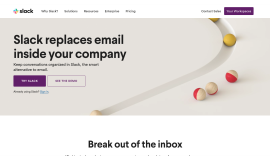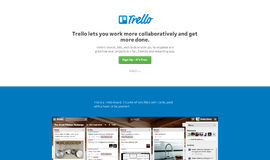The Trick To Finding Your Audience
Every day, people look at a screen and type in a keyword relevant to your business.
If things go to plan, your website is on the top three search results and you get a click. It’s a step in the right direction.
All that search engine optimization (SEO) has paid off and you’ve scored targeted, organic traffic that might convert to a sale.
But wait…
The prospect then heads back to Google to punch in another variation of the same keyword. What happened?
Evidently, their needs weren’t satisfied. They’re looking elsewhere. Probably to your competition…
How do you avoid this scenario? It’s time to reverse engineer that keyword.
Inside the Mind of Your Prospect
The best place to start is from the perspective of your prospect. It’s time to get inside their heads.
For example, let’s say someone hits Google searching for a new ergonomic keyboard to relieve repetitive strain injury (RSI). What questions run through their head when they land on your webpage?
● Is the keyboard durable?
● Does it take some getting used to?
● Will it actually alleviate my RSI?
● Are there testimonials to prove it works?
Leave any important questions unanswered and you may lose your visitor.
Keyword Decompression
Keyword decompression is simply answering the searcher’s query so completely, there’s no need for them to go elsewhere.
Sure, they’ve typed in “ergonomic keyboard,” but what else can we decipher here other than the fact they’re likely in the market for this item?
It’s time to brainstorm. Map out every question someone could feasibly ask about this search term. Next, plan your product or landing page around the results and make sure everything is covered.
5 Steps to a Decompressing Your Keyword
1. What pain do they want to alleviate?
The pleasure/pain principle is as old as the sales profession itself.
More often than not, when someone searches a term, there’s pain to alleviate. With the ergonomic keyboard, it’s to relieve RSI. But even a search for discount plane tickets is an attempt to alleviate the pain of an unnecessarily expensive flight.
Appeal to this pain in your ad copy. For example, you could use something to the effect of:
“Are you sick of sore wrists at the keyboard?”
First, decipher the pain. Then make the presence of the cure explicit and immediate to your visitor.
2. What promise do they want you to make?
It’s tempting to promise great things in your ads, but if they’re too unbelievable, you won’t get clicks.
Technically speaking, every ad is a promise. And, with the abundance of online snake oil peddlers these days, yours must be believable.
To look again at our keyboard example, the promise of unbiased testimonials or significant reduction from discomfort should do the trick.
3. How can you immediately show that the promise can be kept?
We’ve all clicked through an ad only to land on a page that dashes its promises. This isn’t such a big deal when it’s an idle click on a tempting Facebook pay-per-click campaign that happens in our free time.
But when it’s a potential prospect considering your business, anything less than immediate delivery of the promise will damage your credibility.
Always match your headline, images and overall design to the promise made by your ad so people get what they signed up for.
4. Why won’t they buy your product?
Next, it’s time to handle those objections. Consider all possible reasons a visitor might leave the page. For example:
1. Are all features, benefits and value crystal clear?
2. If the product is sensitive, is discreet packaging offered?
3. Is there any social proof on the page?
4. Is there a clear call to action?
5. Is the call to action promoted with content?
For this last point, consider including detailed product descriptions, testimonials, case studies, endorsements and FAQs. Anything that someone might need. All on one page.
5. Can you eliminate their risk?
Last but not least comes eliminating risk with clear website policies and guarantees. This varies from product to product and from business to business.
Whether you clearly highlight manufacturer’s guarantees, regulatory body certification, your own website return policy or anything else relevant, ensure everything is clearly covered that reduces risk for the visitor.
Decompress Your Way to Success
SEO campaigns and website presentation are often sizeable investments. And that makes leaving money on the table all the worse.
By decompressing and reverse engineering your keywords, you maximize not only your conversion rates, but also the return on the time, money and care invested in other parts of your marketing funnel.
Recent Stories
Top DiscoverCloud Experts

Compare Products
Select up to three two products to compare by clicking on the compare icon () of each product.
{{compareToolModel.Error}}

















{{CommentsModel.TotalCount}} Comments
Your Comment